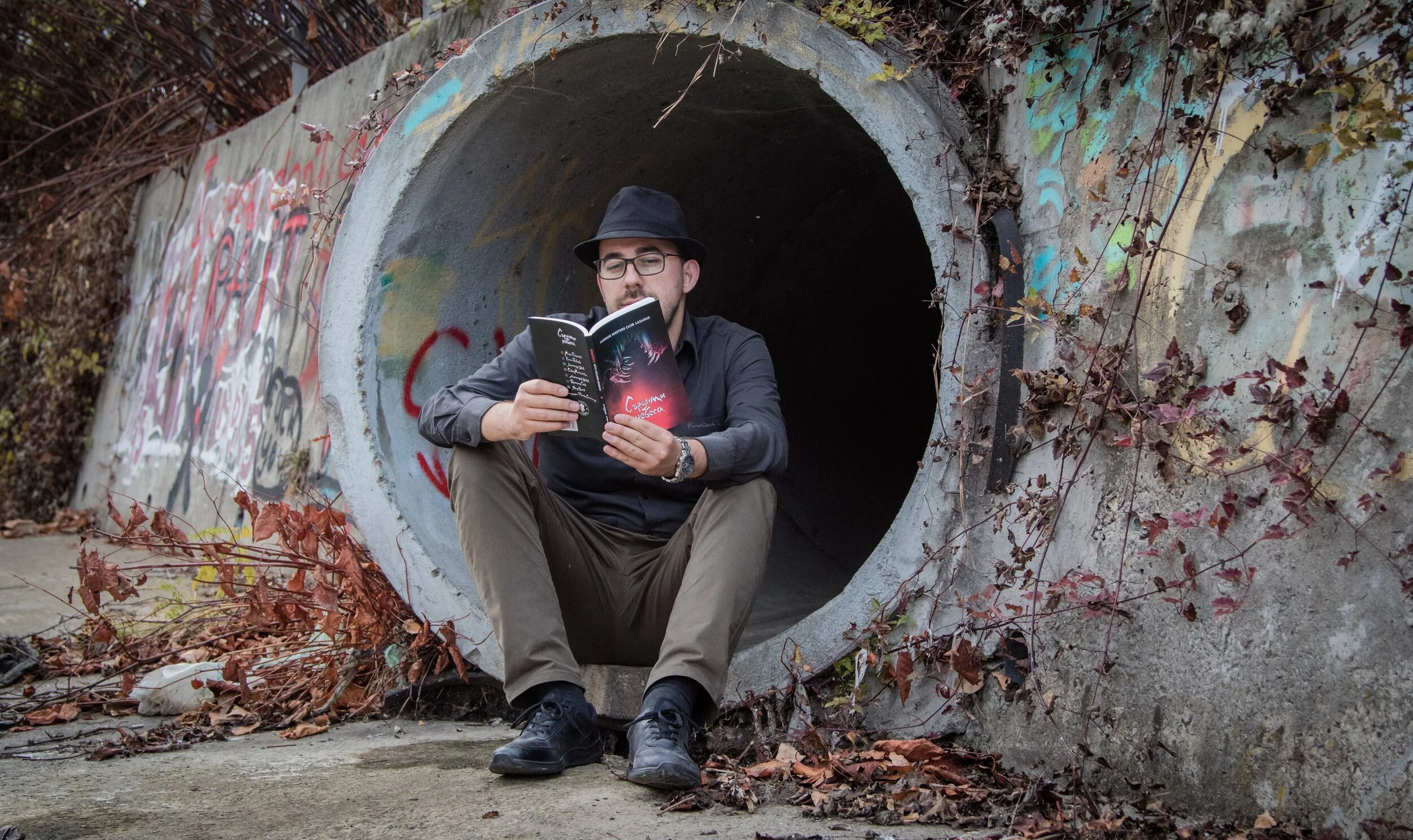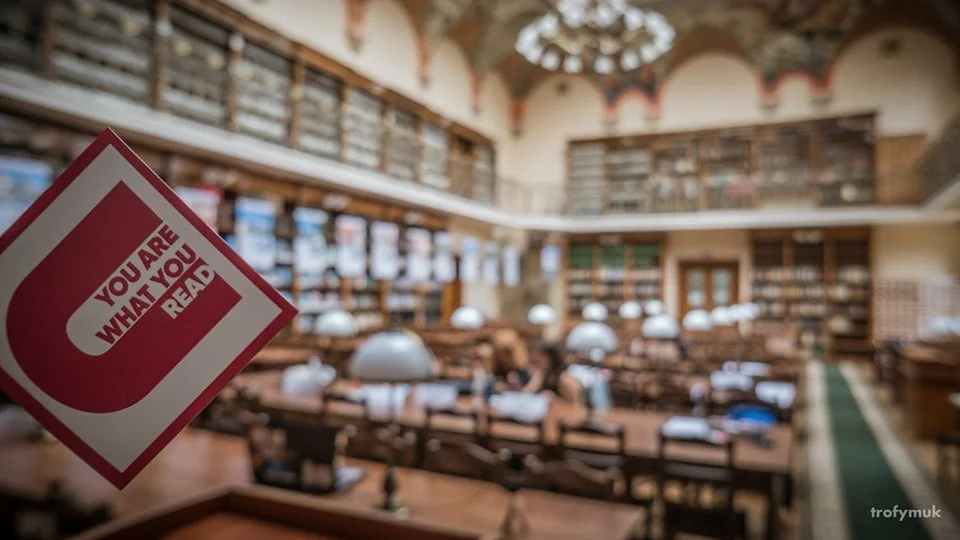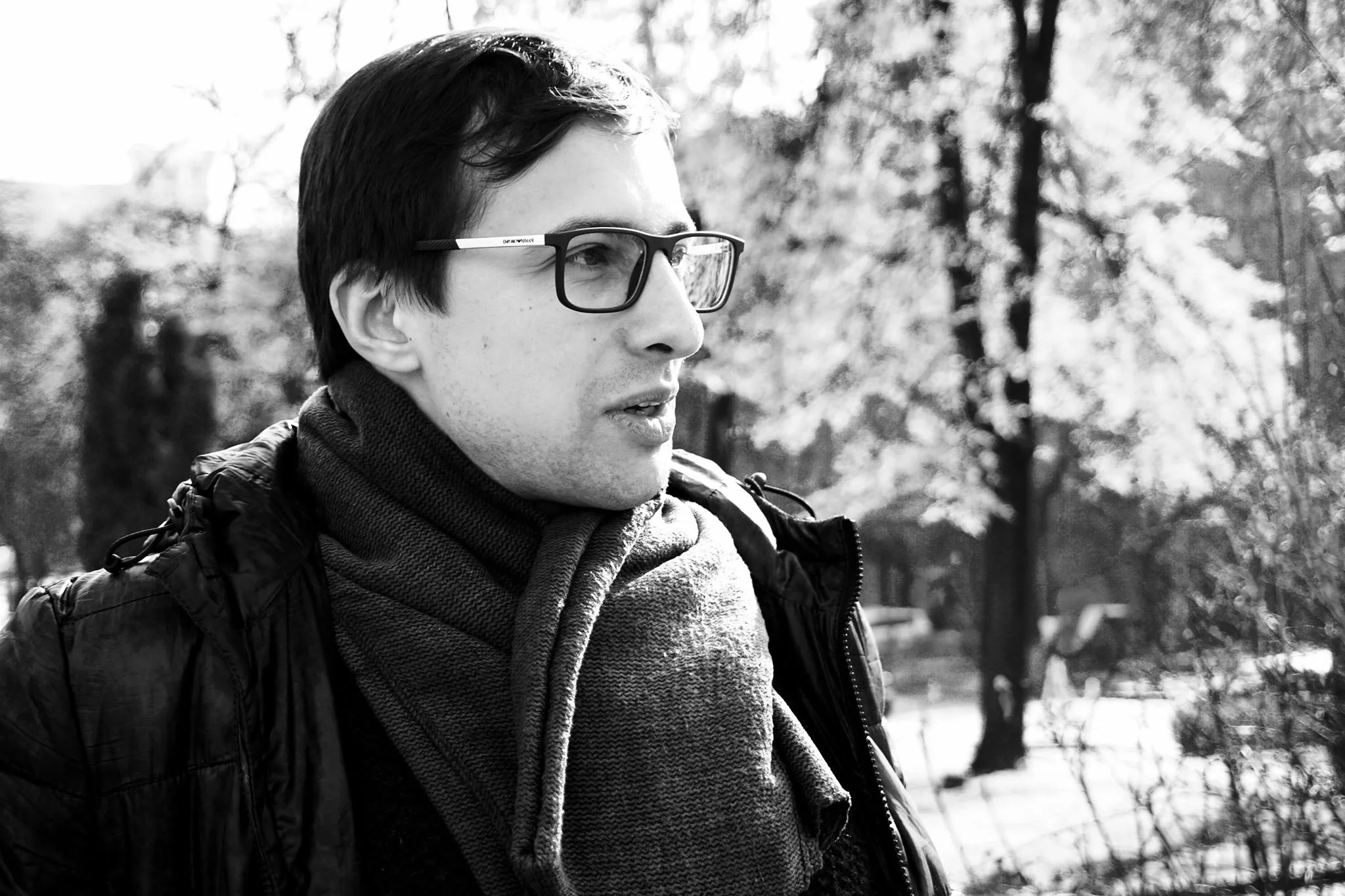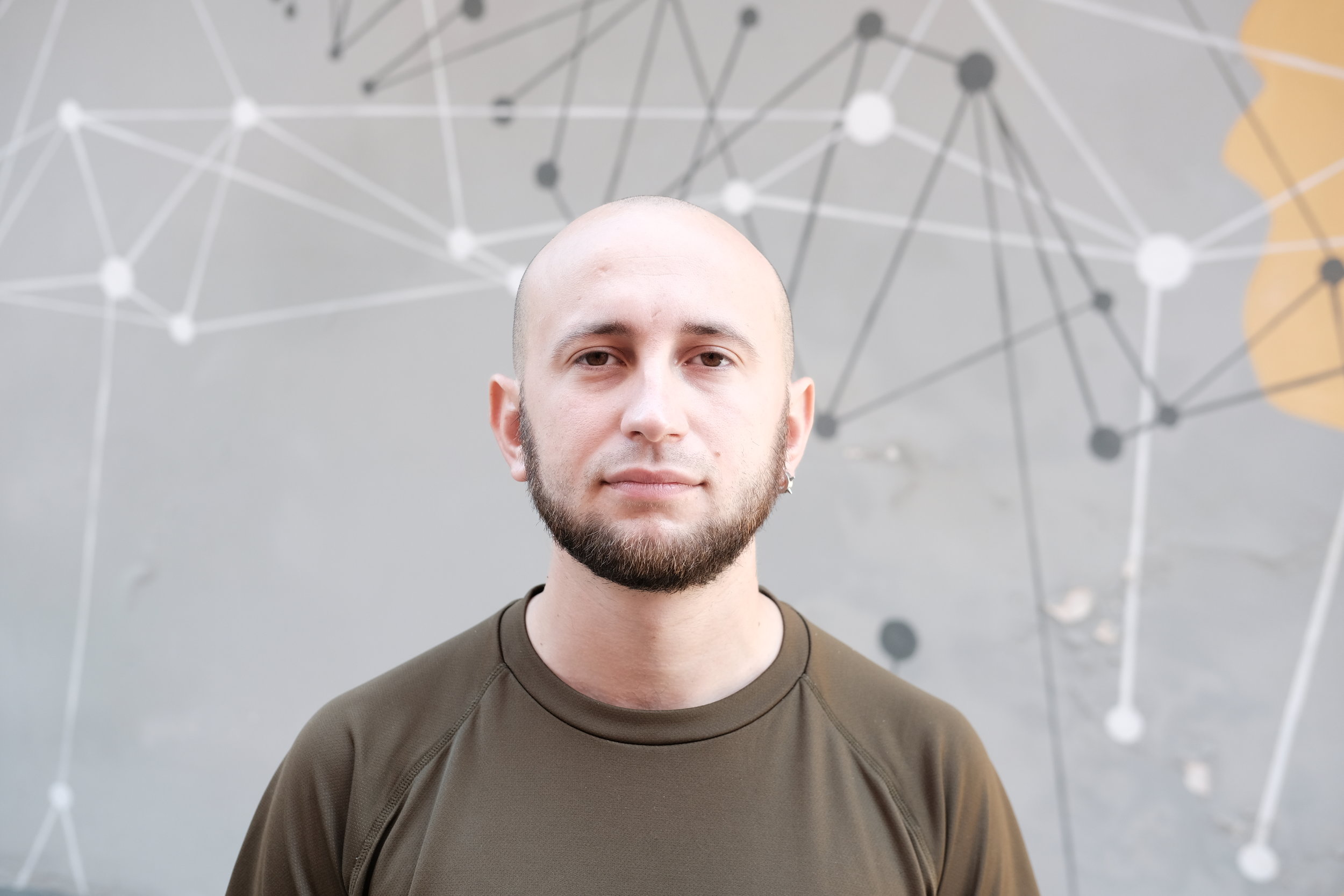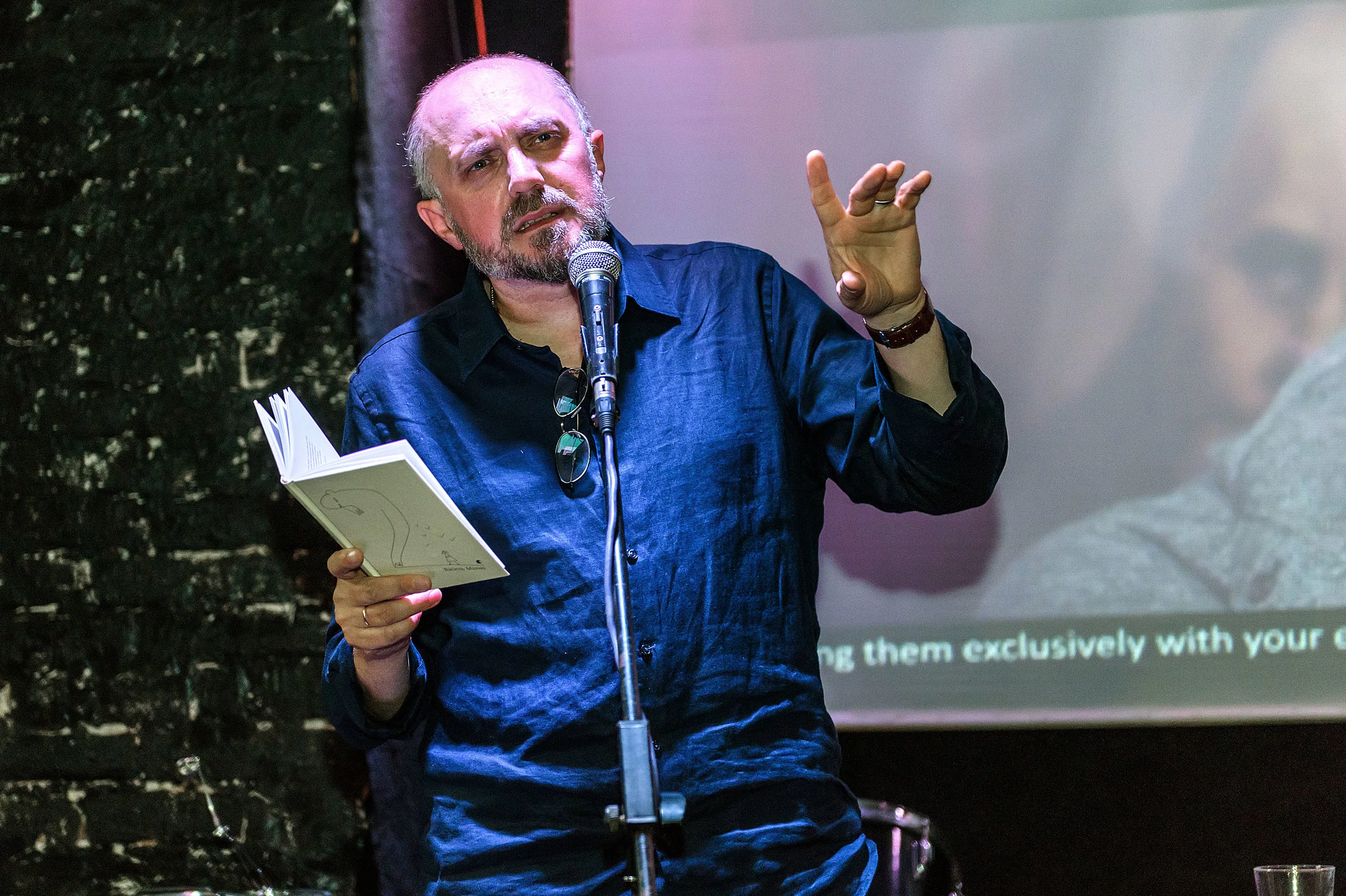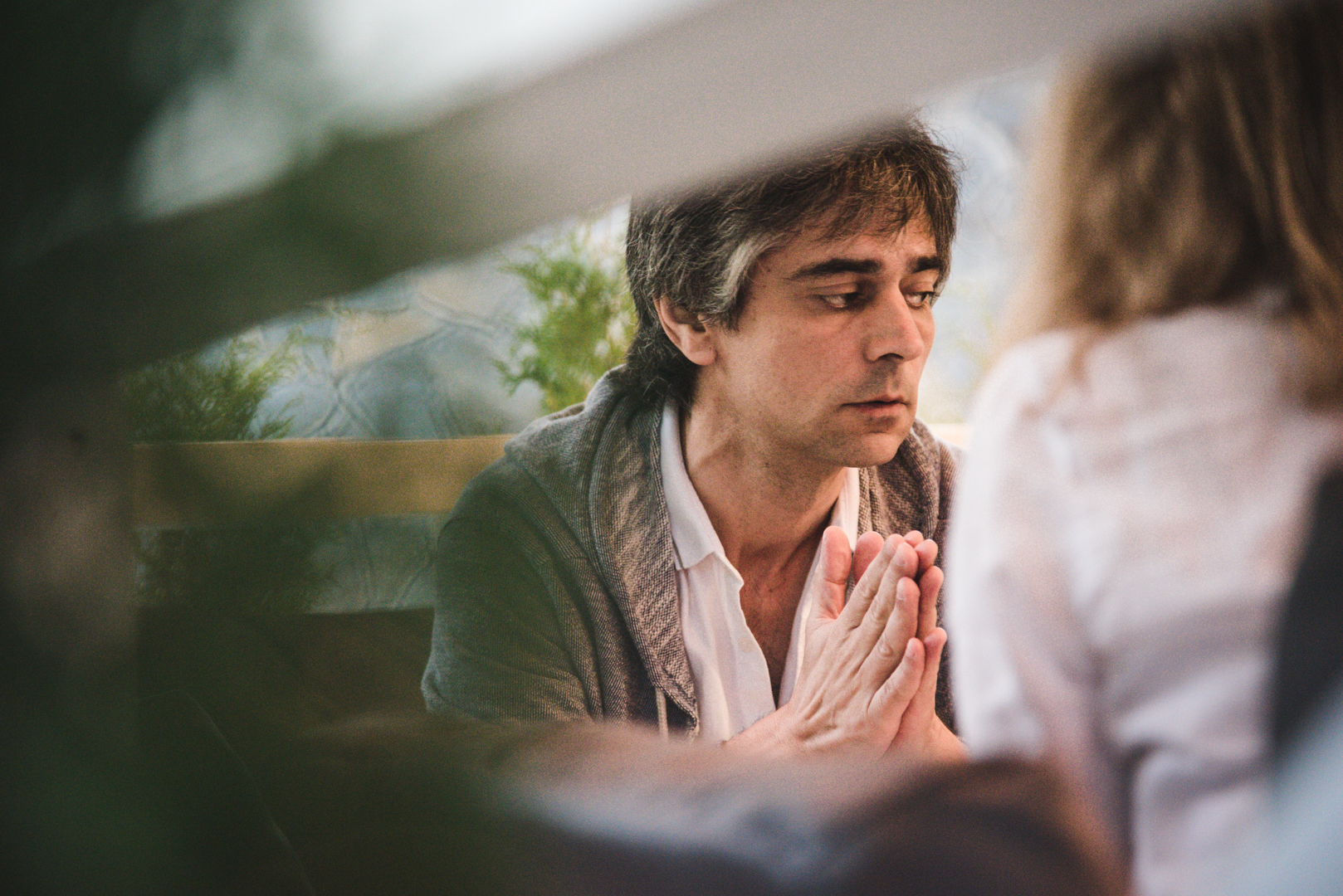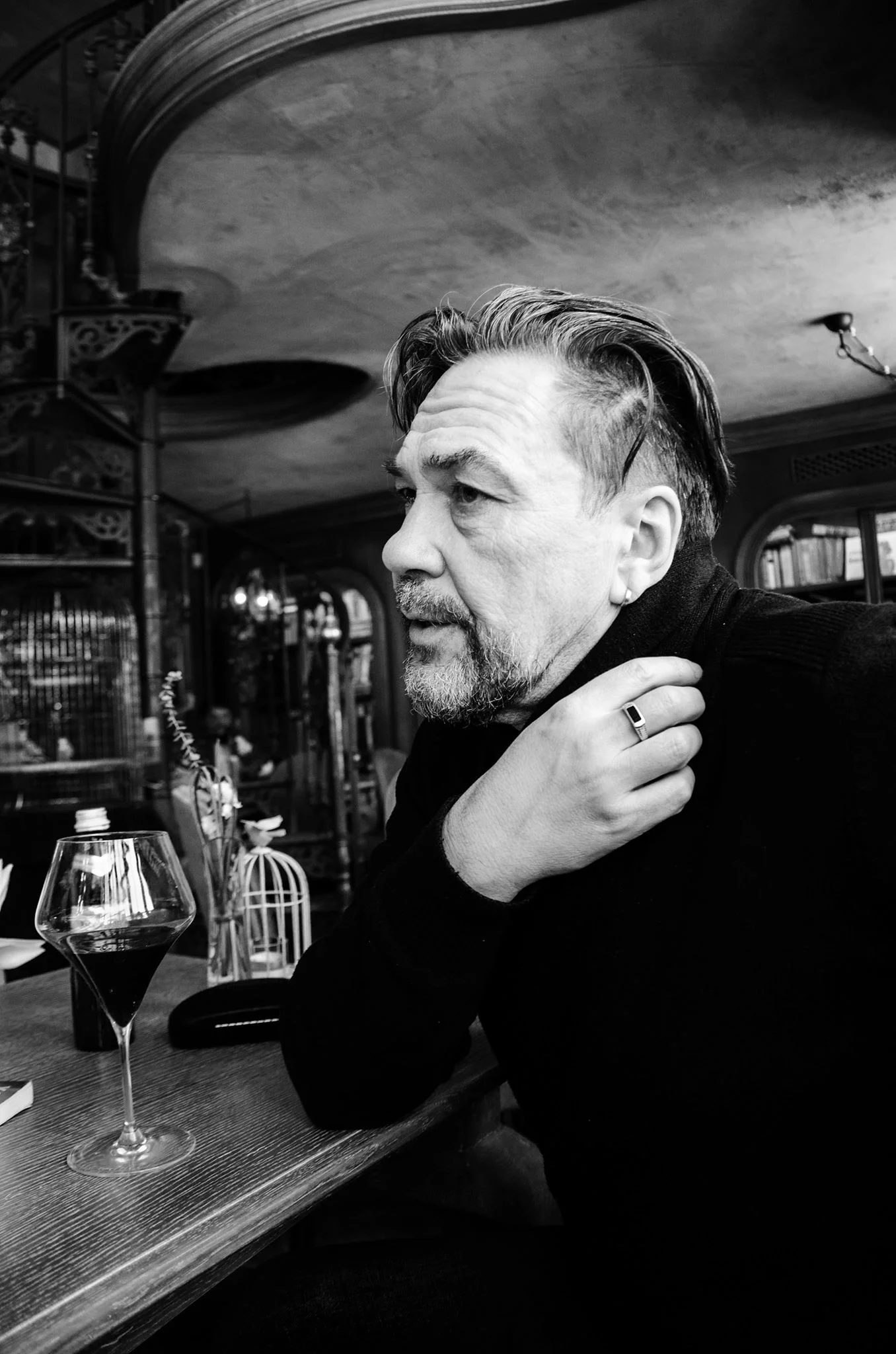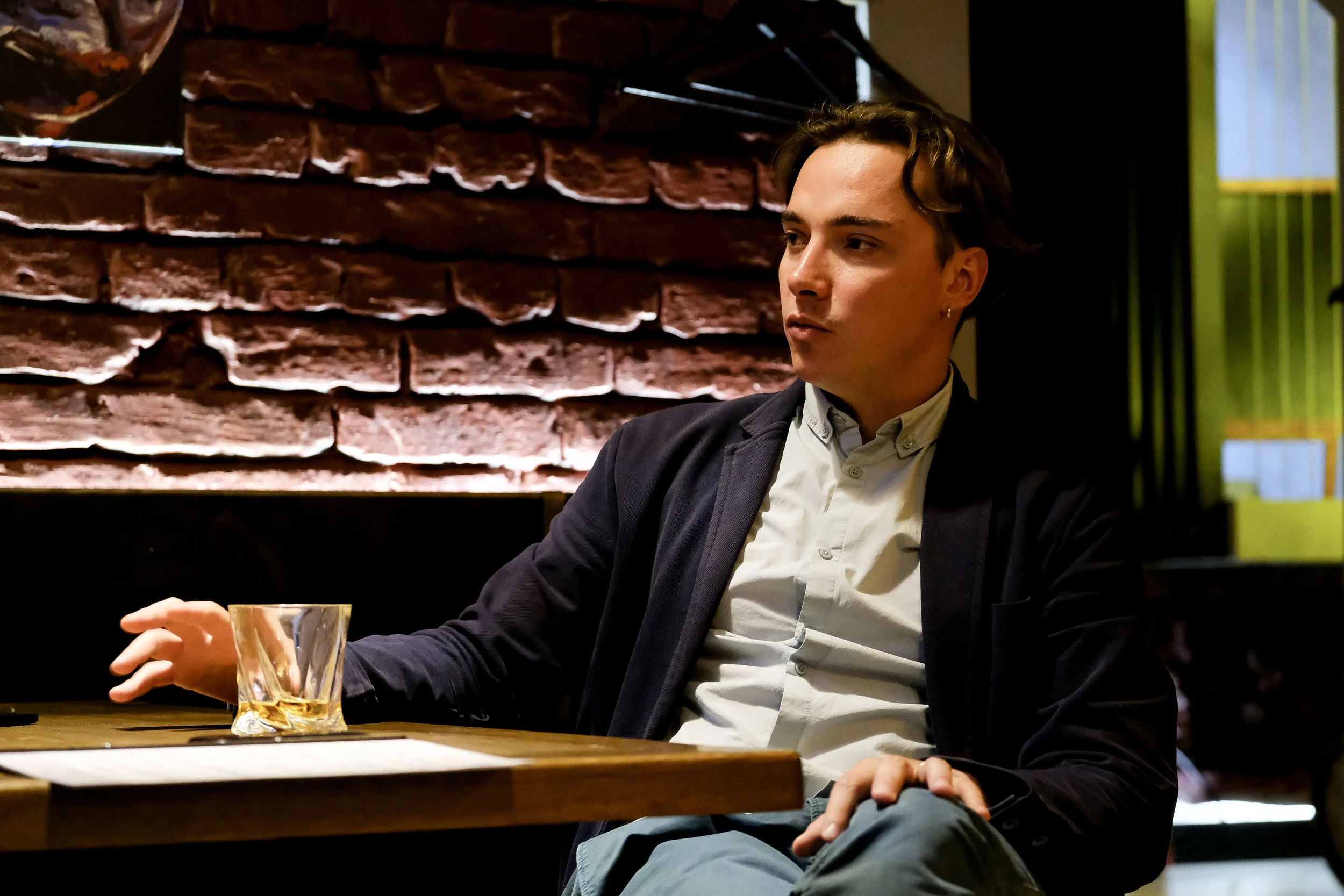"We won't be erased from the literary map of the world": An Interview with Serhiy Zhadan
Interviewed by Liliia Shutiak
As a person of agnostic beliefs who respects different denominations—not just Christianity—it seems to me that the presence of the church in a post-totalitarian society like ours, which is just trying to cope with freedom and subjectivity, and does not always cope, is very important.
Read More
"We Are A Society Of Taboos": An Interview with Roman Malynovsky
Interviewed by Kate Tsurkan
Translations develop a language and keep it current. When a Ukrainian translator searches for the equivalent of a word from English or Chinese, they can push the language in a new direction. That’s very important.
Read More
"Hitchhiking and life on the road got me into writing": An Interview with Artem Chapeye
Interviewed by Kate Tsurkan
Hitchhiking and life on the road got me into writing. In my early twenties I wandered through the US before heading down to Mexico and Central America. Being a poor person from a peripheral country, I had to find work along the way, which turned the trip into vagabonding rather than tourism.
Read More
A Transcript of Trafika Europe Radio's Interview with Serhiy Zhadan
Interviewed by Kate Tsurkan
Every good military officer is a bit of a poet in their soul, so I do not think that writing poetry was something unnatural for Vasyl Vyshyvanyi. I also do not think it is fair to approach his poetry with the criteria of typical literary scholarship because he did not have serious ambitions as a writer.
Read More
“I'm always looking for reasons to be optimistic": An Interview with Iryna Tsilyk
Interviewed by Liliia Shutiak
Translated from the Ukrainian by Kate Tsurkan
I’m always looking for reasons to be optimistic. Everyone in Ukraine is devastated and exhausted by what has been happening to us for the past eight years, and if you do not find any reasons for joy in your daily trials, it is very easy to burn out prematurely.
Read More
“In the air, that’s where my roots are”: An Interview with Alta Ifland
Interviewed by Kate Tsurkan
After the regime fell, we discovered that the Secret Police had installed a microphone behind our bed—yes! Apparently, the dictator’s wife got a kick from listening to the dissidents’ sex lives.
Read More
"A Kind of Black Magic": An Interview with Marek Šindelka
Interviewed by Michael Stein
I think that's one of the main forces of literature, that you can go inside. Other arts like film are on the surface. You're never able to reach the inner world, and even literally the innards.
Read More
"We are only now beginning to pay attention to language": An Interview with Oksana Lutsyshyna
Interviewed by Sandra Joy Russell
I was always innately feminist before I knew the word or the notion. The Soviet world was quite harsh and unforgiving of femaleness, of the condition of being a human being who is female.
Read More
“The problem is that people don’t like complicated stories”: An Interview with Kateryna Sergatskova
Interviewed by Kate Tsurkan
I have long been interested in the dark side of man. Why does someone decide to become a terrorist and intimidate the world? How does someone become the cannon fodder of ideologies?
Read More
"To break out of this kingdom of crooked mirrors": An Interview with Igor Pomerantsev
Interviewed by Dmytro Kyyan
‘An enemy of the people’ – this is too strong. Our times were the times of selective repressions, not collective, as it used to be under Stalin. There were certain rules of the game and you knew when you were breaking them.
Read More
"Reality is much richer and more unexpected than we can imagine": An Interview with Iana Boukova
Interviewed by Khrystia Vengryniuk
I am deeply interested in the relationship between what is said and what is not said in the text, in the balance between what is stated and what should be guessed.
Read More
"I avoid killing my favorite characters": An Interview with Marin Troshanov
Interviewed by Khrystia Vengryniuk
I avoid killing my favorite characters, however, I still experience painful moments that evoke strong emotions, both in me and for my readers.
Read More
LitTransformer, a translation workshop in Lviv, connects UNESCO CITIES OF LITERATURE
Interviewed by Hanna Leliv
During the collaboration, each translator functioned as both the capable guide (in their native language) and the novice traveler (in their peer’s language).
Read More
“My literature has many sacred layers that even I cannot always decipher”: An Interview with Khrystia Vengryniuk
Interviewed by Kate Tsurkan
The constant reading of the Bible opens up more and more to you; sometimes, you just fall into a stupor. This Book is endless and the only one that you can and should read all your life.
Read More
"You must find the answers to your life”: An Interview with Lyubko Deresh
Interviewed by Justina Dobush
Literature is an experience of beauty and love, the beauty of being, and the love of being. Literature is actually a small packed being that lives inside of us. This is why we respect Homer, Shakespeare, Dante.
Read More
"I am glad that artificial intelligence is still not able to take creative work from us": An Interview with Andriy Tuzhykov
Interviewed by Oksana Chmil
Sometimes genres intertwine, as in literary reportage, but they are entirely different tools that are equally necessary. It is like asking what is more important: eating healthy food or doing morning exercises. Both are important.
Read More
"These days, I feel like America has given me a second breath": An Interview with Vasyl Makhno
Interviewed by Kate Tsurkan
Actually, I lucked out with where I settled down in America. Sometimes I think to myself, what if I had chosen Chicago, Philadelphia, or some other provincial New Jersey town—what then?
Read More
"A good prose writer has to be able to get into the skin of his enemies and give them a word": An Interview with Oleksandr Boichenko
Interviewed by Oksana Chorna
After the war is over, and it will take many years to come, only then we can hope for really good novels about the war. Why? Because really good prose takes time.
Read More
“Ukrainian book readers are some sort of a caste”: An Interview with Yuri Andrukhovych
Interviewed by Justina Dobush
In order to become dependent on a reader, one needs to have a clear idea of what his/her reader is like. One has to believe in his existence. Who is this reader, what does he want from his author?
Read More
“Literature supports us, in a way”: An Interview with Andriy Lyubka
Interviewed by Kate Tsurkan
In a way, poverty is very existential. When your circumstances in life are not good, you think a lot about the meaning of things. Now, in this time of war, we are living on the edge.
Read More












